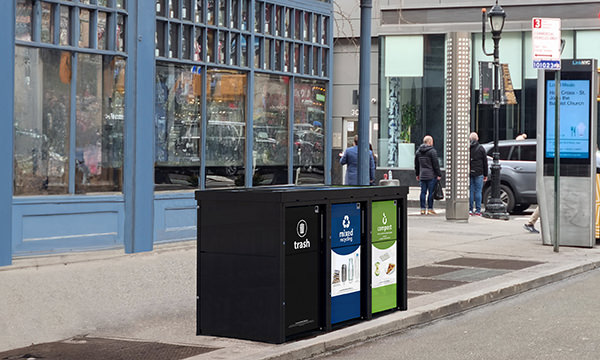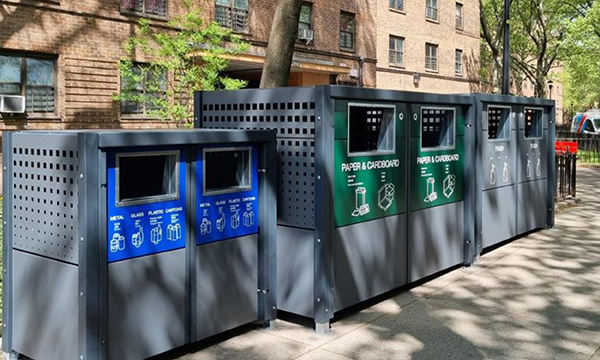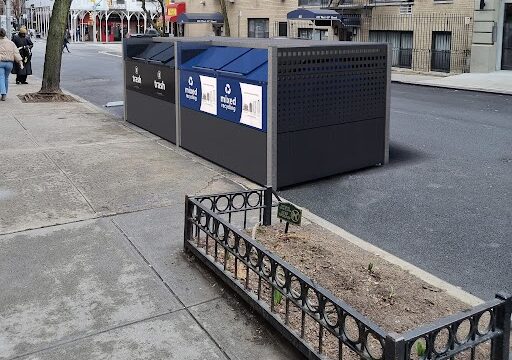

Why metroSTOR Trash Enclosures Are the Go-to Solution for Multi-family Residential Settings

In urban environments across the country, multi-family residential settings are a common form of housing for the American population. According to a 2019 statistics report by the US Census Bureau, 31.4% of housing in the U.S. is multifamily, containing a mix of apartment buildings, condominiums, and mixed-use developments.
Managing the significant volume and wide variety of waste produced by multi-family residential settings, however, is challenging. In built-up urban areas, these are typically high-density communities with diverse populations and differing attitudes toward waste management, with waste flow from the point of generation through to collection often a complex system that can be impeded by factors like illegal dumping, capacity shortcomings, and seasonal fluctuations leading to side waste build up.
For multi-family residential settings, maintaining sufficient trash capacity between collections for every household is vital and is typically one the first concerns that arises when determining the right approach to waste management infrastructure. Addressing equity issues is rightly regarded as a key consideration, particularly with low-income housing, while it is also likely that a disproportionate number of residents are elderly or manage some form of mobility restriction or disability.
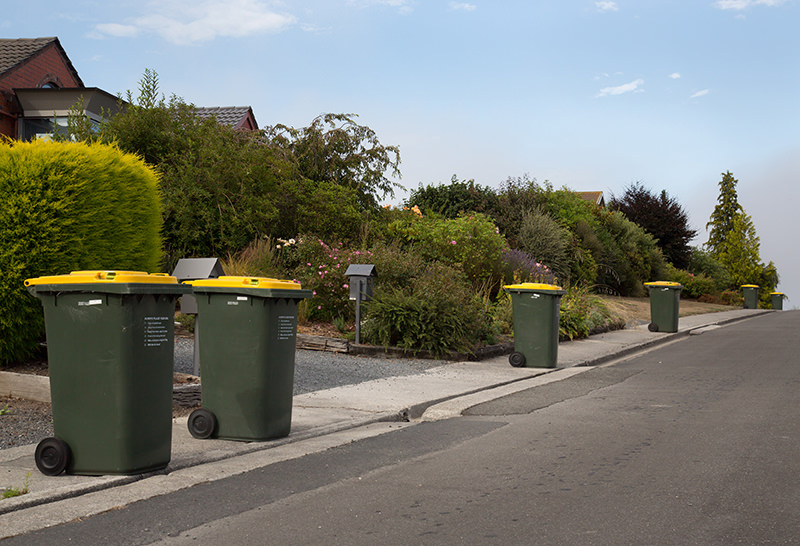
Landlords typically understand these challenges and acknowledge that convenience is often the critical factor for success when it comes to effective waste management in multi-family housing. The optimum response from residents is obtained when the disposal point is located close to each apartment on a well-lit, commonly used route, and within accessible reach of a refuse vehicle for collection. Curbside collection with individual bins is a proven, convenient solution in single-family households, but in multi-family residential settings there is generally a shortage of internal storage space, while establishing accountability from residents is invariably hard to ensure.
Providing enclosure systems to secure trash carts and dumpsters for communal use provides a significantly more cost-effective and space-efficient solution than multiple roll-out carts. While fines and enforcement on the minority who persist in unacceptable behavior can act as a strong disincentive, the benefits of investment in the right waste management infrastructure will far exceed this.
Trash enclosures ultimately enable residents in multi-family buildings to dispose of their trash in a convenient location without the need to unlock and open large access doors, helping to remove much of the motivation behind side waste and reducing opportunities for bulk deposits. Encouraging positive user-behaviour through well-designed enclosure systems that are informative and user-friendly is central to successful zero waste recycling infrastructure for multi-family residential settings.
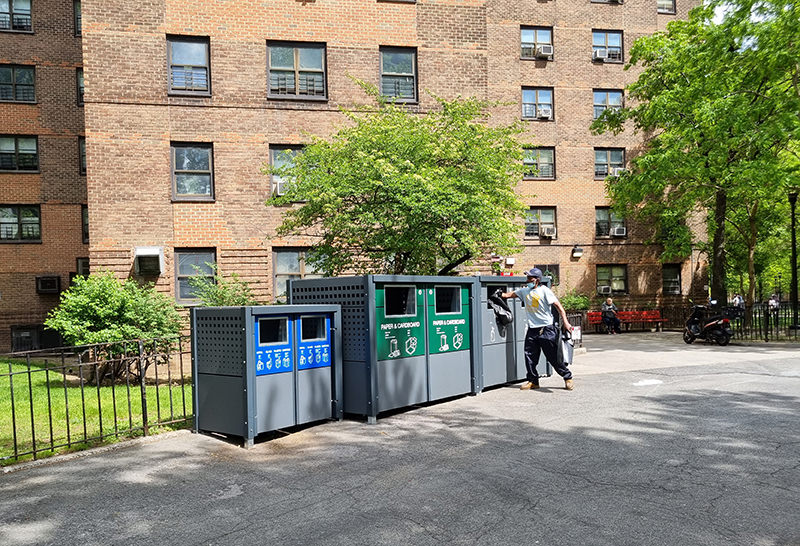
Intuitively designed for multi-family residential settings, metroSTOR enclosure systems optimize storage capacity to provide the appropriate quantity in accessible locations for every household, supported by clear communication in order to reduce contamination and encourage appropriate, sustainable practice.
Our trash enclosures help to promote consistent waste diversion strategies and encourage correct use, with customization opportunities for homeowners’ associations and management companies. Ensuring trash enclosures are designed to be recognizable and inviting to residents enables units to be located more prominently, helping to reinforce positive waste disposal practice.
metroSTOR enclosure systems help to ensure a safer, cleaner environment that can be maintained consistently, benefiting residential and public health and providing solutions to the environmental issues caused by improper waste management.

